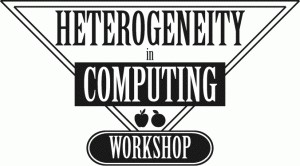HCW 2026 Call for Papers
Heterogeneity in Computing Workshop
May 26, 2026
New Orleans, USA
In conjunction with the 40th IEEE International Parallel and Distributed Processing Symposium (IPDPS 2026)
Sponsored by the IEEE Computer Society
through the Technical Committee on Parallel Processing (TCPP)
Most modern computing systems are heterogeneous, either for organic reasons because components grew independently, as it is the case in desktop grids, or by design to leverage the strength of specific hardware, as it is the case in accelerated systems. In any case, all computing systems have some form of hardware or software heterogeneity that must be managed, leveraged, understood, and exploited. The Heterogeneity in Computing Workshop (HCW) is a venue to discuss and innovate in all theoretical and practical aspects of heterogeneous computing: design, programmability, efficient utilization, algorithms, modeling, applications, etc. HCW 2026 will be the thirty-fifth annual gathering of this workshop.
The Call for Papers will be available early December.
